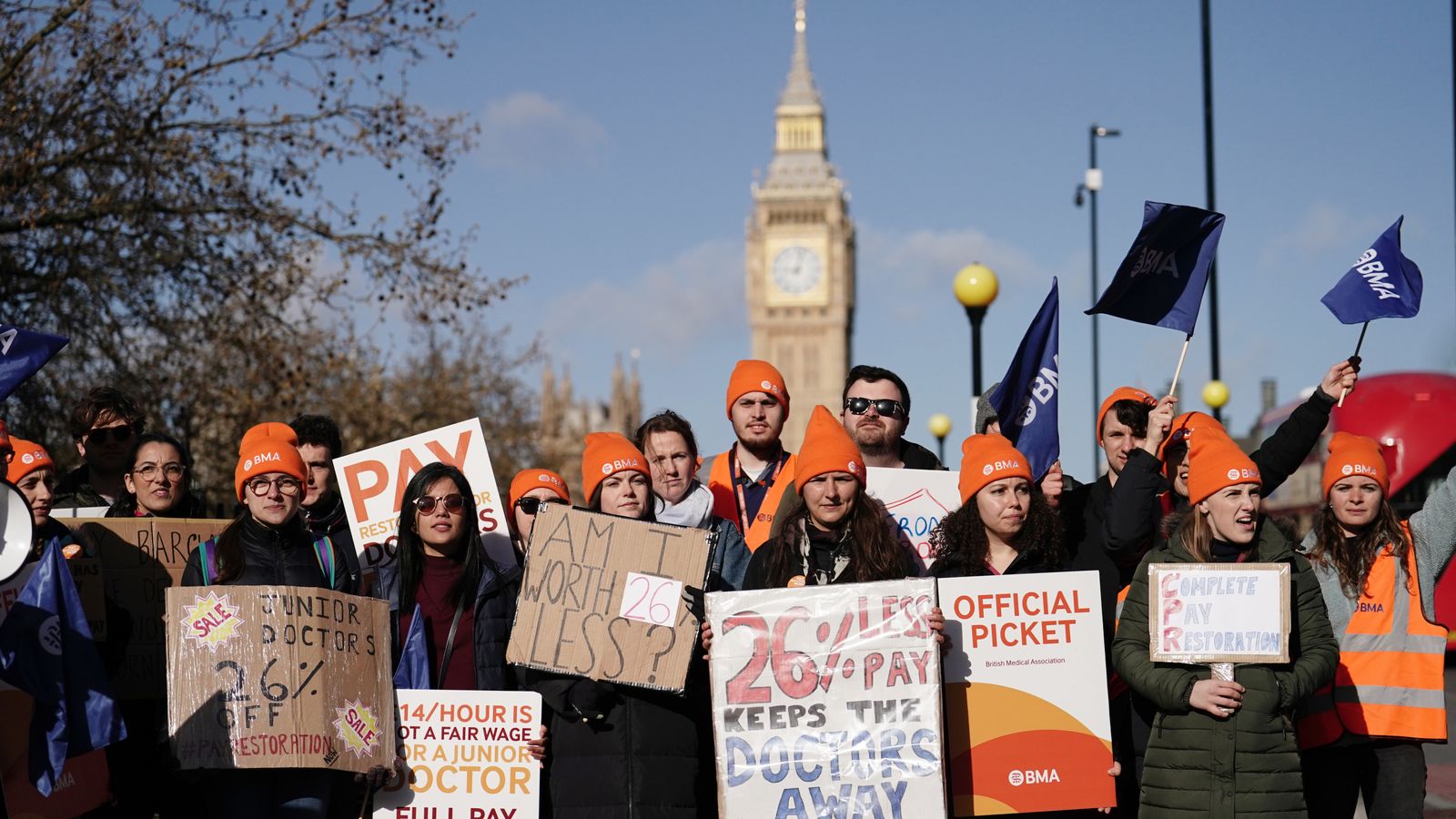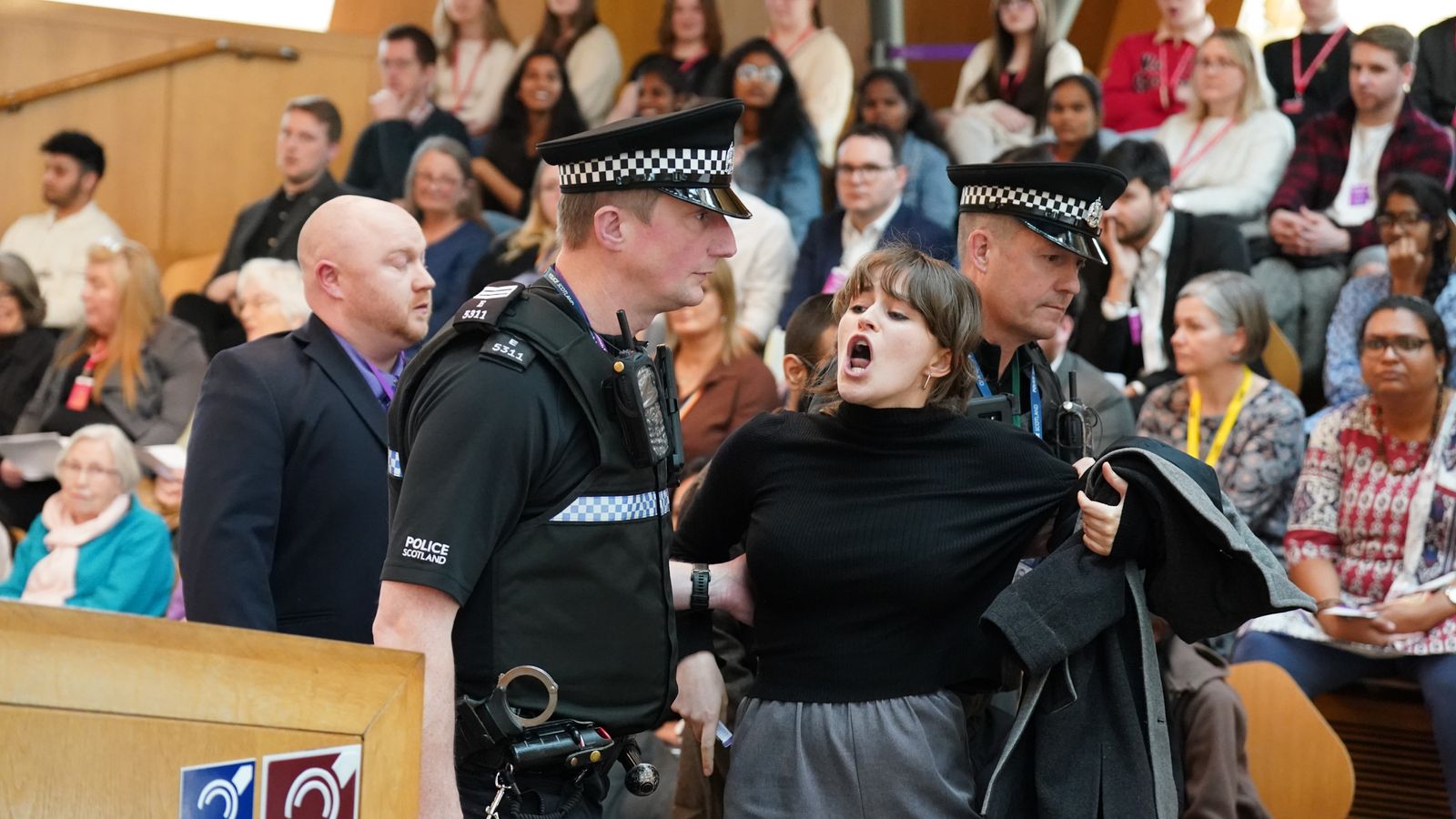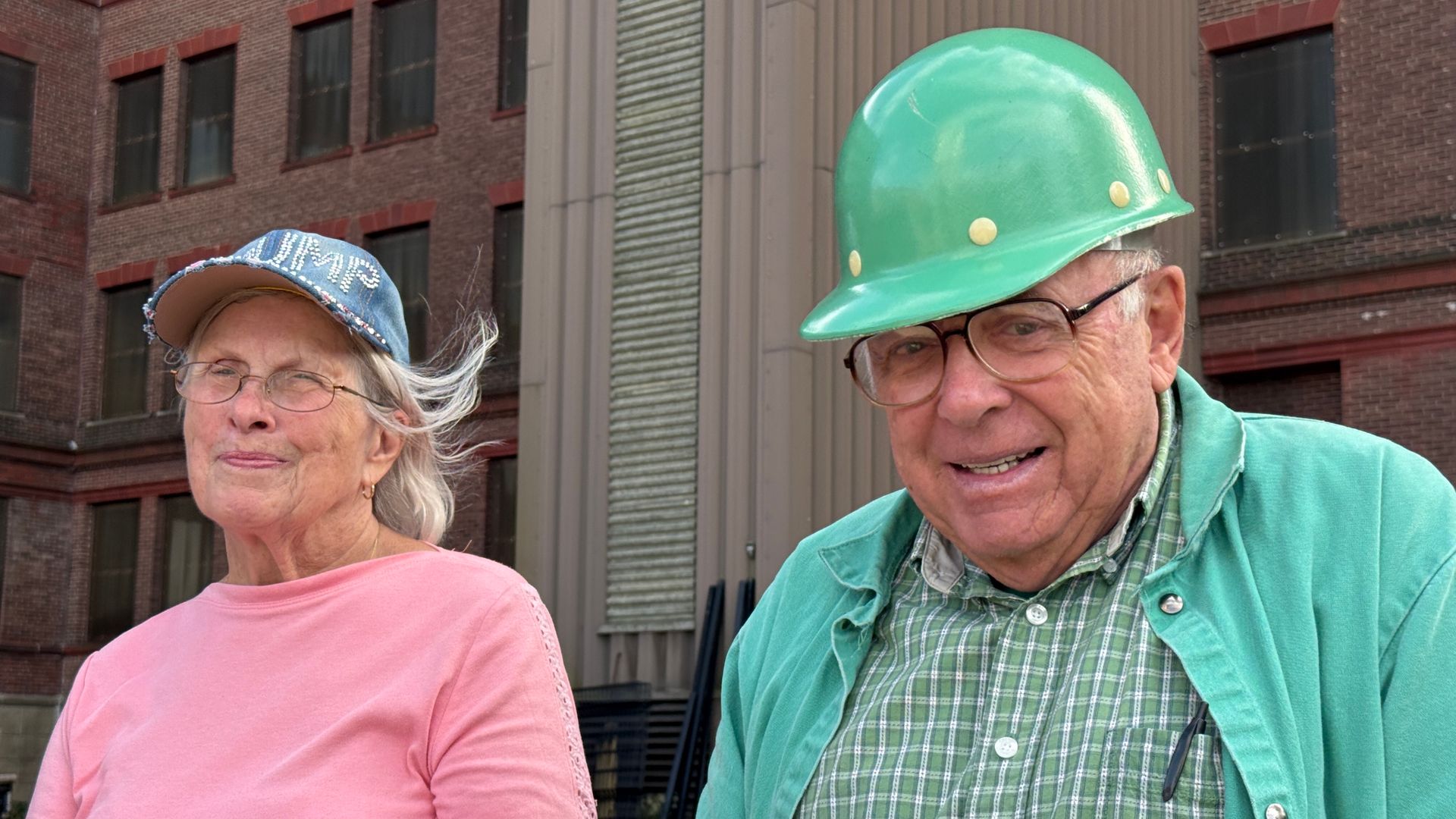The health secretary is “willing to engage” with junior doctors but has said their 35% pay increase demand is “unreasonable” – as they strike for the third day.
About 47,000 NHS junior doctors – any doctor below consultant level – in England are three days into a four-day strike as they claim there has been a 26% real-terms pay cut since 2008/9 because pay rises have been below inflation.
The British Medical Association (BMA) union has called for a full pay restoration that the government said would amount to a 35% pay rise, which ministers said is unaffordable.
Chancellor says economy ‘brighter than expected’ – live politics updates
Health Secretary Steve Barclay and the BMA are locked in a battle over coming to the table for talks as Mr Barclay wants them to drop the 35% demand and pause action but the union said it wants a “credible offer” before it does so.
The BMA maintains it has no preconditions for talks and wants to work with conciliation service ACAS to come to an agreement.
On Thursday morning, a Department of Health and Social Care (DHSC) spokesman said: “The health and social care secretary has been clear his door is open and he remains willing to engage constructively – but that a demand of 35%, which would involve some junior doctors receiving a £20,000 pay rise, is unreasonable in the current economic context.
NHS waiting list hits all-time high – with one in 10 waiting 12 hours in A&E
‘The system is broken’: On the A&E frontline on second day of junior doctors’ strike
Patient forced to fund ADHD diagnosis via credit card as almost a million left in limbo
“We’ve been engaging with ACAS during this dispute and remain open to considering whether there is a role for them to help us reach the desired outcome – an end to strike action which is putting patient safety at risk.
“But our position remains that the junior doctors council needs to significantly reduce its demand for a 35% pay increase and pause action for formal talks to begin and that will not change.”
On Wednesday, Prime Minister Rishi Sunak said he wants to find a “reasonable compromise” with junior doctors.
Please use Chrome browser for a more accessible video player
Chairman of the BMA council, Professor Philip Banfield, said: “In the face of a constant refusal from the health secretary to agree to further talks and put forward a credible offer which could bring an end to the dispute, we believe that working with ACAS provides the most realistic chance of a successful outcome to the negotiations.
“The BMA has no preconditions to talks and has consistently sought to negotiate with the government.
“It takes both sides of a dispute to want to find a solution, and we urge the Health Secretary to show the same willingness that we have and make himself available and open to talks facilitated by ACAS.”
Read more: Why junior doctors feel it is necessary to strike
Please use Chrome browser for a more accessible video player
Minister Chris Philp earlier said the BMA’s request to go through Acas is a “very recent change in position” and he thinks the health secretary would be willing to talk if they do so.
About 350,000 appointments and operations are estimated to have been rescheduled during the four-day strike, which comes a month after a three-day strike.
Hospital bosses have also raised concerns about patient safety as they said they are struggling to secure cover for overnight shifts.
Professor Sir Stephen Powis, England’s national medical director, warned the situation in the NHS will “become more challenging each day this strike progresses”.
Staff still working during the strikes have prioritised emergency and urgent care over routine appointments and procedures.












